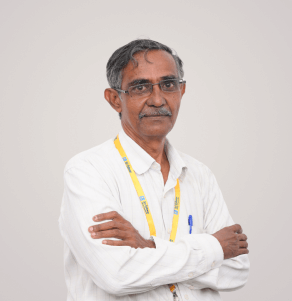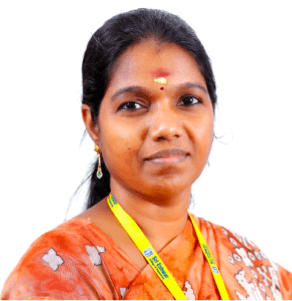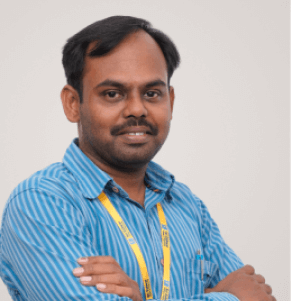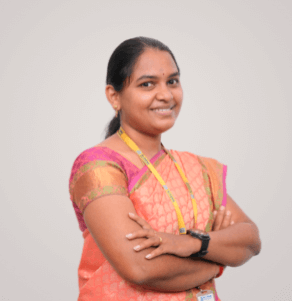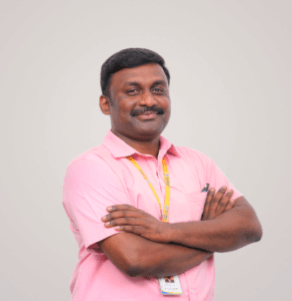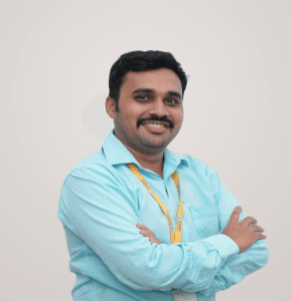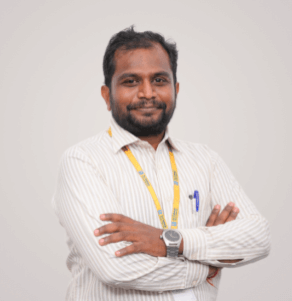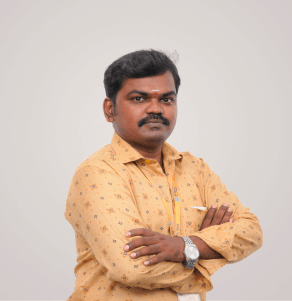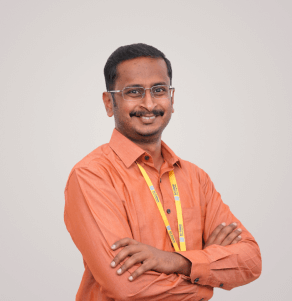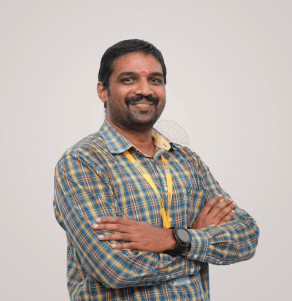Electrical & Electronics Engineering
Empowering and Energizing the World
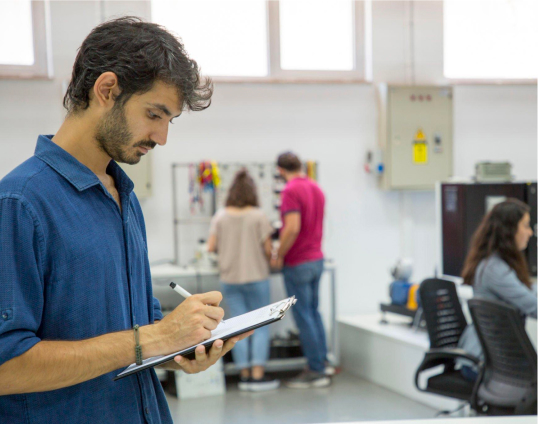
Programme Scope

In today’s context, human life without electricity and electronic appliances is simply unimaginable. Human civilization has seen a great development with the invention of electricity. As we develop more and more gadgets to automate our activities, the field of electrical and electronics engineering becomes more and more exciting.
With the faster depletion of fossil fuels and with the advent of electric vehicles and solar powered systems and the extensive industrial automation that takes place, the study of electrical & electronics engineering is gaining substantial significance with larger number of students choosing to study.
Learning Scope
At Sri Eshwar, in the program of EEE, we strive to develop world class electrical and electronics engineers, by teaching them Internet of Things (IOT), Electronic Design and Automation, Robotics, Industrial Automation, Artificial Intelligence, Machine Learning, Image Processing, Wireless Technologies, E-Vehicles, Design and Manufacture of Special Purpose Machines and the need of the hour Renewable Energy Solutions and tools like ECAD,MATLAB etc.,
In addition to the above the students are also provided exposure to software topics like Database Management System, OOPs Concepts, Java Technologies.
Career Progression Scope
With many countries rapidly shifting to electric vehicles and increase in demands in the energy sector, Electrical and Electronics engineering students have abundant opportunities with high demand in power generation, transportation, medical electronics, communication, aerospace, automation and process industries. Electrical and Electronics graduates can also serve in government organizations, public sector companies and private industries. For this field of engineering, sky is the limit.
4 years
curriculum
60 Seats
Intake
95%
Students placed (2022-2023)
Industry Powered
Laboratories
Laboratories
Industrial Powered Laboratories
Value Added Courses
Student List
Consultancy
Laboratories
Engineering Practices Lab
Power Electronics and Drives Lab
Control & Instrumentation lab
Power system Simulation Laboratory
Industrial Powered Laboratories
Mitsubishi Powered Advanced Factory Automation Lab
Messer Cutting Systems Powered Thermal Cutting Systems Lab
Texas Instruments Powered Embedded system Design Lab
Value Added Courses
Mitsubishi Powered Advanced Factory Automation Lab
Messer Cutting Systems Powered Thermal Cutting Systems Lab
Texas Instruments Powered Embedded system Design Lab
Student List
Consultancy
Vision
- To groom students into problem solvers and globally competent Electrical and Electronics Engineering professionals.
Mission
We will achieve our mission by,
- Facilitating students to acquire core competency in the field of electrical and electronics engineering
- Grooming students with leadership skills and ethical values to become socially responsible
- Collaborating with industry to provide engineering solutions
- Inculcating research culture among staff and students
Program Details
Program Educational Objectives (PEO)
- PEO1: Acquire a gainful career.
- PEO2: Continually acquire knowledge in electrical and electronics engineering and foster research.
- PEO3: Provide solutions for interdisciplinary issues and societal problems.
- PEO4: Inculcate attitude to work in a team or as an individual in professional career.
Program Outcomes (PO)
- PO1: Engineering knowledge: Apply the knowledge of mathematics, science, engineering fundamentals, and an engineering specialization to the solution of complex engineering problems
- PO2: Problem analysis: Identify, formulate, review research literature, and analyze complex engineering problems reaching substantiated conclusions using first principles of mathematics, natural sciences, and engineering sciences
- PO3: Design/development of solutions : Design solutions for complex engineering problems and design system components or processes that meet the specified needs with appropriate consideration for the public health and safety, and the cultural, societal, and environmental considerations
- PO4: Conduct investigations of complex problems: Use research-based knowledge and research methods including design of experiments, analysis and interpretation of data, and synthesis of the information to provide valid conclusions
- PO5: Modern tool usage: Create, select, and apply appropriate techniques, resources, and modern engineering and IT tools including prediction and modeling to complex engineering activities with an understanding of the limitations
- PO6: The engineer and society: Apply reasoning informed by the contextual knowledge to assess societal, health, safety, legal and cultural issues and the consequent responsibilities relevant to the professional engineering practice
- PO7: Environment and sustainability: Understand the impact of the professional engineering solutions in societal and environmental contexts, and demonstrate the knowledge of, and need for sustainable development
- PO8: Ethics: Apply ethical principles and commit to professional ethics and responsibilities and norms of the engineering practice
- PO9: Individual and team work: Function effectively as an individual, and as a member or leader in diverse teams, and in multidisciplinary settings
- PO10: Communication: Communicate effectively on complex engineering activities with the engineering community and with society at large, such as, being able to comprehend and write effective reports and design documentation, make effective presentations, and give and receive clear instructions
- PO11: Project management and finance: Demonstrate knowledge and understanding of the engineering and management principles and apply these to one’s own work, as a member and leader in a team, to manage projects and in multidisciplinary environments
- PO12: Life-long learning: Recognize the need for, and have the preparation and ability to engage in independent and life-long learning in the broadest context of technological change.
Program Specific Outcomes (PSO)
- PSO1: Analyze and provide electrical energy related solutions to the industry and society.
- PSO2: Ability to apply soft computing techniques for designing embedded systems oriented applications.
- PSO3: Develop factory automation solutions.
Curriculum & Syllabus
UG Regulations – 2023
UG Regulations – 2019
UG Regulations – 2017
UG Regulations – R2019
Head of the Department
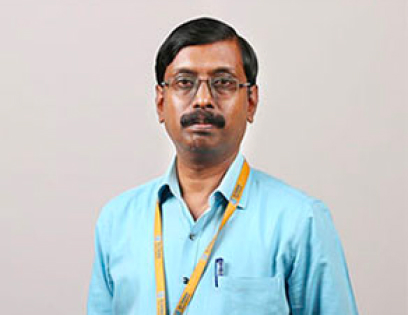
Dr.W.Rajanbabu
- Designation
- Professor & Head
- Educational Qualification
- M.E., Ph.D.,
- Teaching Experience
- 25 Years
Faculty Profile
Professor

Dr.G.Srinitya
Assistant Professor
Assistant Professor
Assistant Professor (Sl. Gr.)
Assistant Professor (Sl. Gr.)
Assistant Professor (Sl. Gr.)
Assistant Professor (Sl. Gr.)
Assistant Professor (Sl. Gr.)
Assistant Professor (Sl. Gr.)
Assistant Professor (Sl. Gr.)
Assistant Professor
